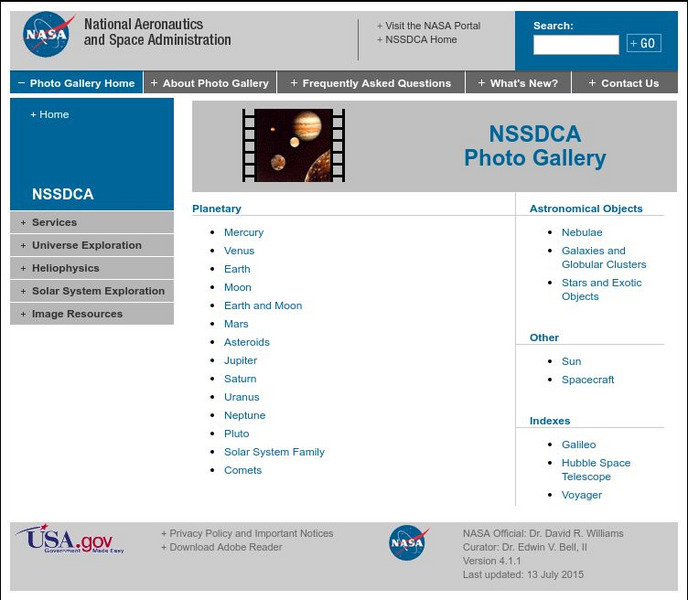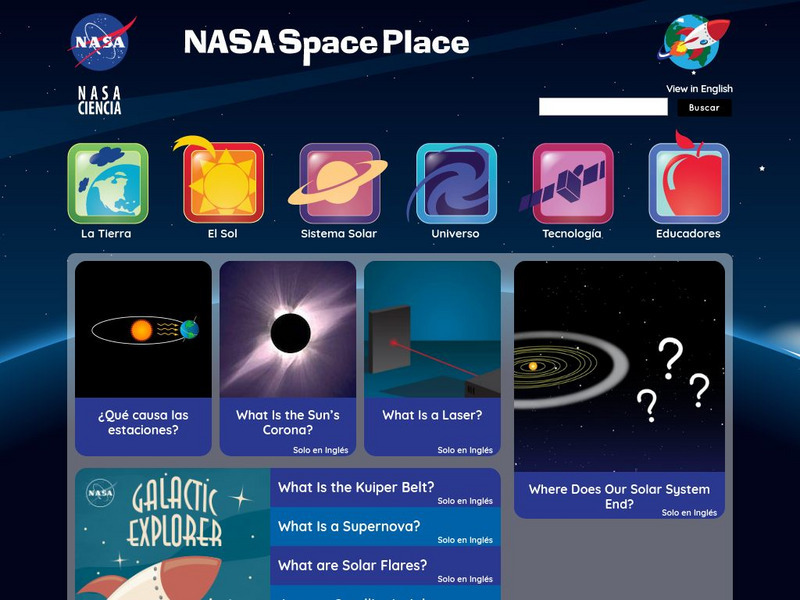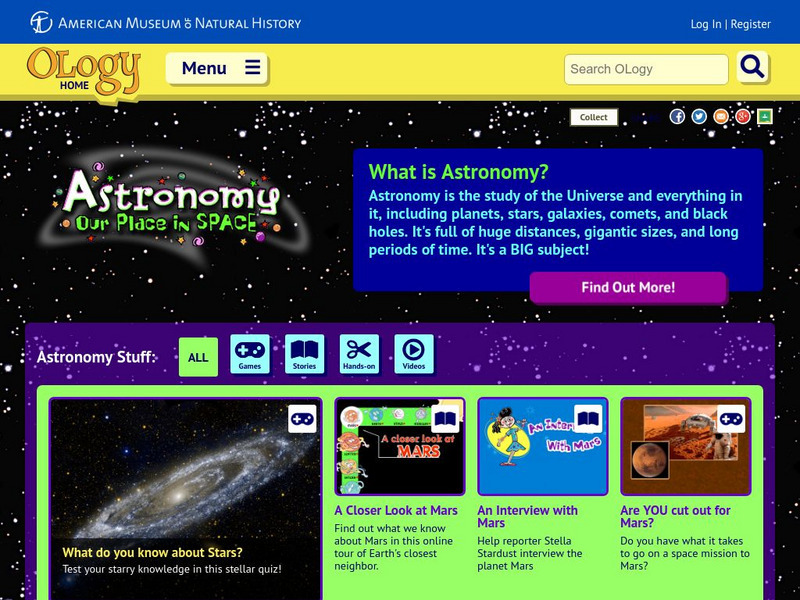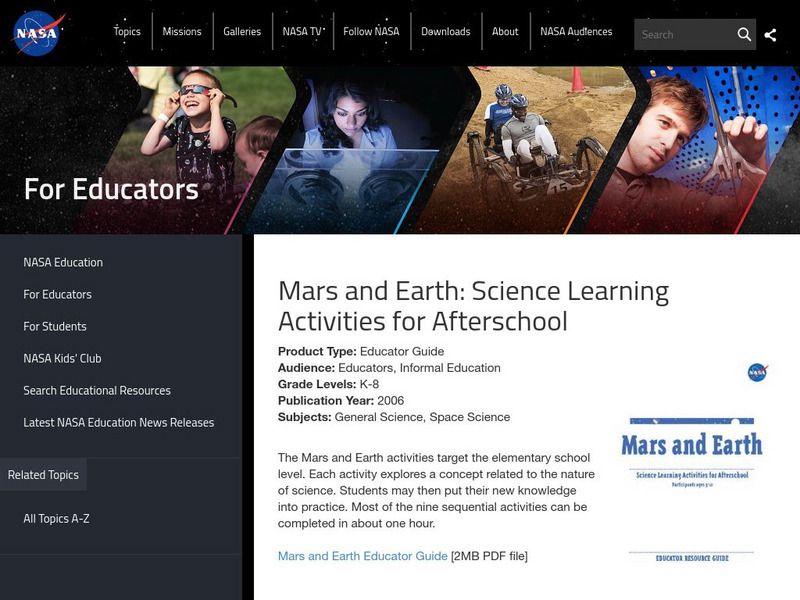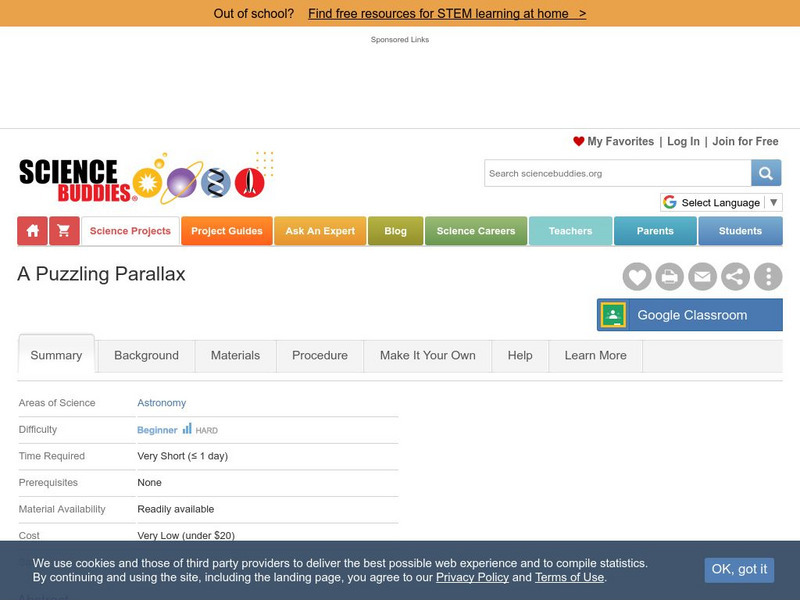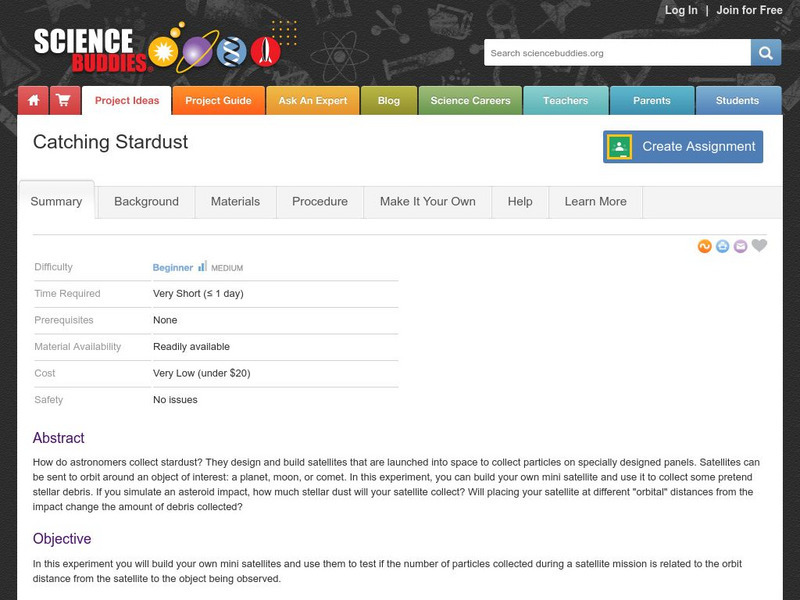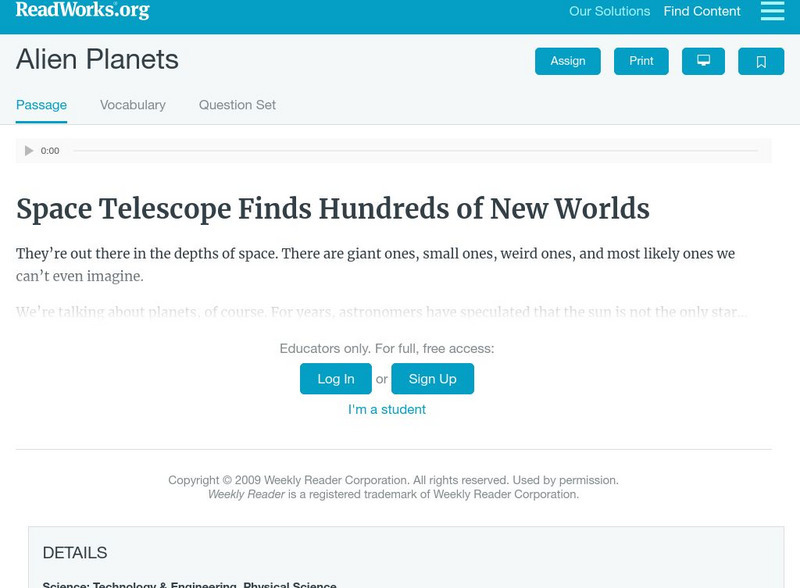NASA
Nasa: The Space Place: Planet X Treme Weather
Ever wonder what the weather is like on other planets besides Earth? This resource explores the extreme weather that occurs on other planets.
NASA
Nasa Space Science Data Archive: Photo Gallery
A website featuring a collection of images from NASA. Collection includes images of planets, comets, nebulae, galaxies, stars, sun, and spacecrafts.
Smithsonian Institution
National Air and Space Museum: Exploring the Planets: Early Discovery
This section of the exhibition gives the history of the discovery and study of space starting with the Greeks and Romans through to the early 1900's.
NASA
Nasa: The Space Place: Looking for Water Everywhere!
NASA has discovered water in space. This interactive resource allows you to examine the different planets and moons in our solar system to find out where their water is located.
Other
Hong Kong Space Museum
Besides an introduction to exhibitions and events at the museum, the site provides a guide to stargazing, an astronomy FAQ, space news, virtual tours (see site map) and research resources (including Chinese-English star and constellation...
NASA
Nasa: Jet Propulsion Laboratory: Planet Quest: Exoplanet Exploration
Constellation of articles, images, diagrams, posters, videos, and more on the subject of the search for planets, particularly Earth-like planets, outside our solar system.
NASA
Nasa: The Space Place
Do you know what a solar eclipse is? Or how about a galaxy? Space Place has the answers to all your questions about space! Site includes information to explore about planets, satellites, moons, and much more. Also on the website are...
Other
Space Science Institute: Alien Earths: Star and Planet Formation
Learn about the lives of stars, and how stars and planets form. The Interactive activity, 'Planet Families' requires Adobe Flash and cannot be launched.
NASA
Nasa Space Place: El Space Place
NASA's space science site for kids - en Espanol. Features a wide range of activities, including games, projects, animations, and more. Also contains useful information on basic physics, chemistry, and other natural sciences, offering...
American Museum of Natural History
American Museum of Natural History: O Logy: Astronomy: Our Place in Space
This resource is a place for learning all about astronomy--stargazing, planets, space science, and interesting astronomical phenomena and discoveries. Explore, ask questions, find information, and meet American Museum of Natural History...
BBC
Bbc Newsround: Top 5 Amazing Space Discoveries
Read about some of the most important space discoveries in recent times.
NASA
Nasa: Mars and Earth: Science Learning Activities for Afterschool
This set of activities teaches students about the big picture of science using Mars as an example: how to collect data, use evidence, and look at models.
CK-12 Foundation
Ck 12: Earth Science: Planets in Our Solar System Study Guide
A quick overview of the eight planets in our solar system.
BBC
Bb Ci Space: Earth
The BBC provides a general overview of the planet Earth. Content includes statistical information, a focus on the four seasons, moon information, and more.
New York Times
New York Times: Space
The New York Times maintains this archive of articles relating to space and space exploration.
Massachusetts Institute of Technology
Mit: Open Course Ware: Earth, Atmospheric and Planetary Sciences: Solar System
A university-level course that looks at the structure of the solar system, the sun, the planets, and other bodies in space. Includes course readings, assignments, and study notes.
Science Buddies
Science Buddies: A Puzzling Parallax
Did you know that ancient astronomers could measure the distance to other stars? They could also distinguish between stars and planets. How could they do that without modern technology of telescopes? See if you can discover the link...
Science Buddies
Science Buddies: Catching Stardust
How do astronomers collect stardust? They design and build satellites that are launched into space to collect particles on specially designed panels. Satellites can be sent to orbit around an object of interest: a planet, moon, or comet....
Smithsonian Institution
National Air and Space Museum: Exploring the Planets: Ancient Times & the Greeks
In ancient times only five planets were known: Mercury, Venus, Mars, Jupiter, and Saturn. Learn about Greek astronomer Ptolemy's theory for the solar system that was to survive for fourteen centuries.
CK-12 Foundation
Ck 12: Earth Science: Inner Versus Outer Planets Study Guide
An overview of the difference between inner and outer planets of our solar system.
CK-12 Foundation
Ck 12: Earth Science: Planet Orbits in the Solar System Study Guide
Review planets orbiting in the solar system using this study guide.
National Geographic
National Geographic: Educator Resources: Extreme Weather on Other Planets
Find lesson plans, worksheets, photo galleries, and related links for teaching about the weather systems of planets in our solar system.
Read Works
Read Works: Alien Planets
[Free Registration/Login Required] This nonfiction piece discusses the discovery of previously unknown planets in the solar system. This passage is a stand-alone curricular piece that reinforces essential reading skills and strategies...
NASA
Nasa: Solar System Exploration: Planets
This impressive compilation of ideas is a great source for space science. Loaded with extra links for further information on the solar system.

